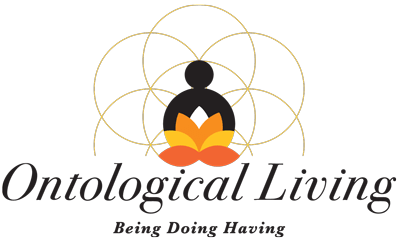The Dance of Language: How to Be Together
Language is better viewed as a dance or play of coordinated activity rather than as a medium for sharing information. That means that a breakdown in communication is a failure of conversational coordination: it’s a failure to be together in a consensual space. For example, when you “hang up” on someone during a telephone call, you haven’t just ended the conversation. You’ve actually failed to come to an agreement that the conversation is finished.
To enrich your life through more effective conversational possibilities, you must learn to appreciate that language is not only an integral part of the human condition, but in a very real sense, it is the human condition. Language shapes and constrains every aspect of human life. The world is not simply a collection of material things, one of which happens to be language. The world is a meaningful whole, and a nexus of readable signs through which you navigate, constantly changing it as it changes you:
But even as language shapes you, you shape language.
So language is both an instrument and a ubiquitous medium, like air, through which you invent the sense, purpose, and aims of your life. Language is fundamentally creative—you create your possibilities through language.
The radical claim that we need to take seriously is that language is not primarily information processing. We are not simply communicating facts about an independently objective world that language more or less mirrors.
Language is not a map, but rather, language is part of the terrain itself—it is a shared activity that generates a shared world of meaningful possibilities.
When we coordinate activities, even in silence, we interpret reality, that is, we “speak” a way of being, which may then be sounded out through vocal speech.
Language is the expression of our creative force, a living and breathing interpretation of ways of being and worldviews.
We can empower ourselves and enrich our lives by understanding how we create possibilities through speech and conversation.
The question to ask yourself is, “What exactly do I do with my words?”
The single most important thing we do in speaking is make commitments. When you sincerely believe something, you are committed to a specific interpretation of the world. When you request something from a loved one, you are committed to the belief that they can actually do what you’ve asked them to. When you declare that your situation is “hopeless,” you commit yourself to the truth that no opportunities exist for you—you create a world in which you are disempowered. In this case, what you may be “language-ing”— or doing with your words— is not to take responsibility for creating new possibilities. You become a passive victim.
But you can create joy and purpose by taking a more active role in the world you’ve created, and by being more mindful of the commitments you’ve made through the inner and outer talk that shapes your perception.
You must begin to see that the possibilities and opportunities you’ve created for your life emerge out of habituated assumptions and commitments you articulate through speech, often in the form of chatter in your mind. You’ve enacted these commitments through habituated patterns of response.
By being mindful of these habits and unspoken commitments, you can more effectively coordinate your actions with others.
When you come to see how language conditions your perception and shapes your world, then rethinking language as primarily action, rather than factual information, will shift the way you engage the world— it will draw you into your commitments— (requests, promises, assertions, declarations and offers known as speech acts), with greater clarity, and this will provide you with the invaluable skill of learning to own your life by more actively shaping its possibilities. You not only get a better sense of which dance you’re doing, but you learn to better coordinate your movements with your partner. You learn to better read and navigate the dynamic interplay between self and other.
—Stay tuned for more on speech acts!
© 2016, Ideal Coaching Global, Kevin Perry and Bettie J. Spruill
Read Kevin Perry’s book to learn more: Philosophy







